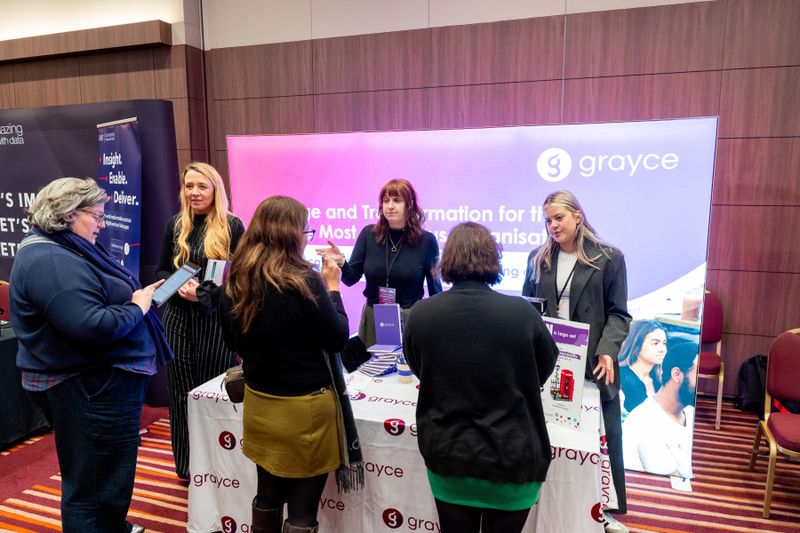
Working life gets a new look
Grayce works hand in hand with the emerging workforce; here we share our take on working life's new look.
What do we want from our work? A big salary or modern office? Maybe opportunities to give back or to travel abroad? For most of us, a satisfying working life probably combines a mixture of these elements. Whilst meaningful work looks different for each of us, we can agree that today it hinges on much more than salary.
Gone are the days of working for one company for our entire career - in fact, today’s emerging workforce isn’t necessarily assuming that they’ll work for someone else at all. The rise of freelancers, remote working and the gig economy all signal a shift away from the traditional office based 9 to 5. The boundary between our working lives and home lives is becoming increasingly blurred. We’re seeing greater alignment between our needs and values inside and outside of work. Unlike in the past, we’re tailoring our working lives to ourselves, rather than the other way around.
Driving this change is the emerging workforce. Millennials and Gen Z are leading the way when it comes to seeking a ‘full package’ from employers, not just a big salary. It’s not only the emerging workforce that are onboard with this shift, but we’re also seeing people well into their working lives ditching traditional careers to start their own businesses, or share their wealth of knowledge with startups. Although the attitudes of different generations of workforces are not necessarily the same, the similarities in what they’re seeking from their work signals a more universal shift in our working world.
As we reimagine our working world, how do employers ensure they offer work that their employees find not only satisfying, but meaningful?
Purpose
Much more than the personal satisfaction of a job well done, we’re looking for our employers to operate with a sense of purpose in mind. Building on a businesses’ mission statement and values, it’s key for businesses to practise what they preach and put those beliefs into action.
It’s no surprise then that both employers and employees are placing increasing focus on a synergy between personal and company values. As the gap between our work and personal personas narrows, we’re no longer relegating the causes we care about to our personal time, but bringing them into the boardroom. Whether that’s nurturing new talent or fundraising for a project that’s close to the company’s heart, it’s a consistent, local focus that CSR efforts are moving towards. In addition to day-to-day business successes, the sense that employees are working together towards a larger social purpose develops a strong sense of community.
Flexibility
Work. Eat. Sleep. Repeat. Sound familiar? The formerly fixed structure of our working days is undergoing a flexible facelift. We’re ditching doing the same repetitive tasks 9 to 5 at our desks in favour of more fluid ways of working. The rise of freelancing and the gig economy suggests that a flexible approach is beneficial for both employees and employers. Hiring on a short term basis offers a way to solve businesses’ immediate needs without the commitment of increasing head count.
Providing a flexible working space is another way to tailor working life to employee preferences. Going hand in hand with flexible schedules, when we’re in the office, it’s important to have a workspace that adapts to our needs. Break out spaces for innovations and soundproofed booths for phone calls, make for an environment that’s as agile as our ways of working. Giving employees the flexibility to work when, where and how they want is vital for creating a culture of trust.
Wellbeing
As the conversation surrounding wellbeing and mental health continues to expand, employers are working to demonstrate a commitment to employee wellbeing. From guides for taking care of your wellbeing to educational mental health sessions, there’s plenty of practical steps for employers to take to show genuine care for their employees. Alongside first aiders that are ready to help in the event of physical injury, we’re now also seeing the rise of mental health first aiders. Training employees to deal with panic attacks and spot the signs of stress and depression builds a strong foundation for employees to feel cared for and supported.
Whilst educational tools and training are undoubtedly beneficial, it’s vital to ensure that the conversation around mental health extends beyond this. Today, employers are fostering company cultures that not only have increased awareness about mental health and wellbeing, but an open dialogue surrounding it as well.




